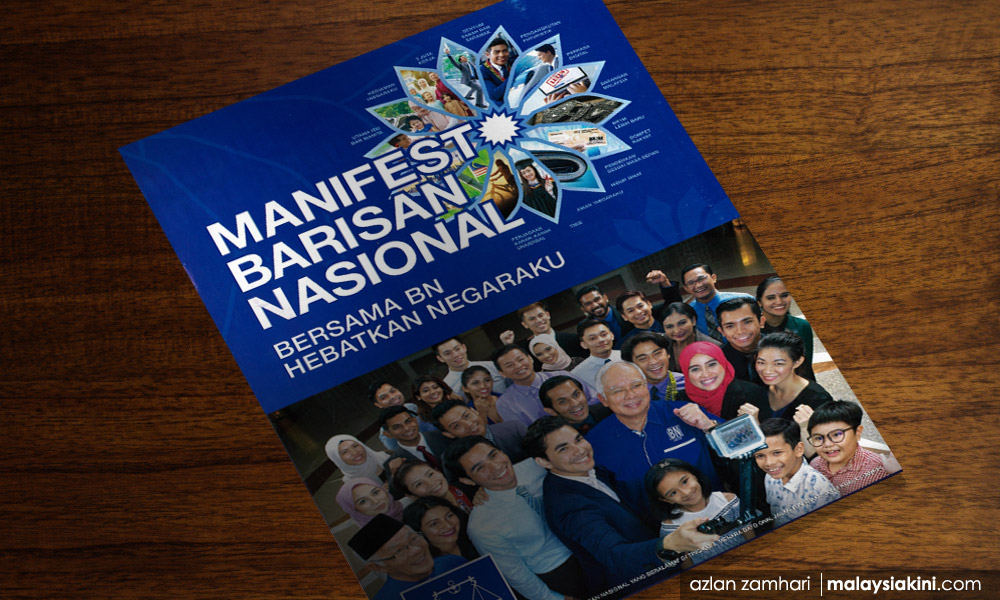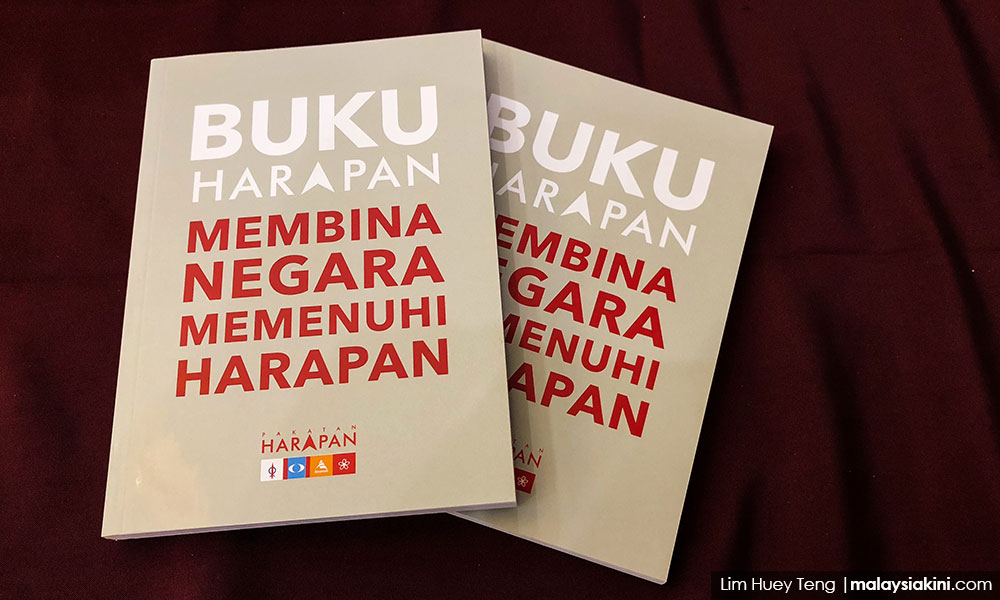COMMENT | So Malaysians vote on May 9. Wednesday. A strange pick. A case of eeny meeny miny moe?
Still, 15 million voters are being beseeched to pick between two huge egos: caretaker Najib Abdul Razak and his erstwhile mentor and boss, Mahathir Mohamad. Both bring elephants to the ballot. Both elephants share one name - manifesto.
What, exactly, is a manifesto? It usually runs into hundreds of pages that, apparently, define – using the term cautiously – a political party, what it represents, and what it intends to do if it wins power. It whips up popular or populist euphoria, and often promises the world without regard for its capacity to realise them.
Manifestos, besides party logos, are similar to candy stores selling an array of tantalising lollies. The ‘nirvana’ is the 222 seats in Malaysia’s “august house” – Parliament.
Manifestos read like propaganda. In fact, they are propaganda. Propaganda is a “normal” course of party political politicking.
Manifestos are promises. Over time they’re federalised into policies if a party wins power, and depending on agendas. Sometimes nothing materialises. This, also, is “normal”. But it’s where trust deficit balloons, when voters are betrayed. Betrayal and lies are arguably the kernel of politics.
Too many commentators tend to conflate election promises and policies. They’re not always the same thing.

Too many commentators consider manifestos as the holy grail of the “good politics” to come, as though the manifestos will magically turn into policies that will miraculously enrich the lives of citizens. Sometimes they do; often they don’t.
Consider this: As far as decision-making goes, once elections are done, voters are cut out of the loop for a sizeable time – until the next poll comes around, when voters become relevant again to political parties.
It’s a circular argument, like a dog chasing its own tail. Or the argument for inflation: higher wages lead to higher prices (inflation), leading workers to demand even higher wages to afford even higher prices, and on and on it goes to nowhere.
Manifestos shouldn’t be seen as policies, not even as de facto policies. They’re wild and woolly promises made by politicians desperate for votes. Manifestos are outrageous, unrealistic and banal. They’re similar to business sales pitches to win customers. “Buyer beware” should also apply to politics.
Ever thought of what happens to the manifesto post-elections, especially when a sitting “government” has such weak and incompetent ministers, and a quiescent, pliant one-race dominated bureaucracy that won’t question the transition of election promises to policies, especially those that appear resoundingly unrealistic?
Last Friday, Najib claimed his 2013 manifesto had achieved a 99.4 percent success rate. How do voters know if this is true or if it’s spin? Fake news, maybe?
Given the slew of lies and withholding of truth by the Najib regime since 2009, and the scandals allegedly linked to Najib since 2002, it’d be tempting to consider all such claims as fake until Najib provides corroborative evidence.
And forget key performance indicators (KPIs): they’re baloney. KPIs are like statistics: Statistics can be monkeyed. It’s a mug’s game.
So what can voters do? Plenty.
For starters, be less believing of politicians who come bearing gifts. They’ve an innate ability to not tell the truth. Voters can keep their eyes and ears peeled and think through claims and counter-claims.

Challenge politicians over their promises, then watch them squirm and immediately contract the “mudah lupa” disease.
Manifestos are frequently so over-the-top that voters must ask themselves just how realistic and achievable any of them are in a five-year political cycle.
And after 70 years of institutionalised racism, voters must question politicians on policies that seem favourable to one social class over others, one race over others. Because that’s the injustice of prejudice, and nobody should have to put up with that kind of monkey business.
Instead of being mere listeners and watchers at rallies and speeches, ask speakers hard questions. Take a leaf from the BBC’s Hard Talk program. Ask the tough questions but don’t give up and don’t back down.
They won’t like it, of course. And it shouldn’t be skin off voters’ noses. They’re not politicians if they haven’t the stomach for difficult, earnest questions. Make their heads spin. Catch them off guard. Catch them out. Shame them if you don’t get credible answers.
Keep politicians honest. They’re mere politicians; not god, not demigods. Ask. If voters don’t ask, voters will lose. The country loses. It’s elections time. The con is on.
MANJIT BHATIA is a US-based academic, researcher and analyst.
The views expressed here are those of the author/contributor and do not necessarily represent the views of Malaysiakini.

